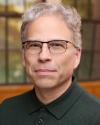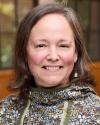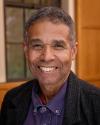Associate professor of ethnomusicology John-Carlos Perea presents a concert of cedar flute songs featuring arrangements of jazz standards by Coltrane, Ellington, Ayler, and Jordan. With special guests Jessica Bissett Perea (voice), Rose Martin (percussion, voice), Jess Pena Manalo (voice), and Marc Seales (piano).
Program
Prayer Blossom
(composed and arranged by Martin and Perea)
Don’t Cry
(powwow song learned from Dr. Bernard Hoehner-Peji, arranged for flute by Perea)
The Photograph
(learned from Hoehner-Peji)
Ghosts
(Albert Ayler, arranged for flute by Perea)
Farther Along
(learned from Mavis Staples, arranged by Peña Manalo and Perea)
Smell of the Rain
(Perea)
Tattoo
(Lewis Jordan)
Blue Horse Special
(powwow song learned from Hoehner-Peji, arranged for flute and voice by Bissett Perea and Perea in honor of Hoehner-Peji’s 100th birthday)
Come Sunday
(Duke Ellington, arranged for flute and piano by Seales and Perea)
Song for Josephine
(Perea, arranged for flute and piano by Seales and Perea)
Naima
(John Coltrane, arranged for flute, piano, and voice by Seales and Perea)
Personnel
John-Carlos Perea
cedar flutes, voice
Jessica Bissett Perea
voice
Rose Martin
percussion, voice
Jess Peña Manalo
voice
Marc Seales
piano
Thank You
Thanks to Jessica, Rose, Jess, and Marc for sharing sounds and space, the Perea and Hoehner families, student, staff, and faculty colleagues in the UW School of Music and American Indian Studies, flute builders Ken Light and Guillermo Martinez, Masaru Koga, Hafez Modirzadeh, Gary Stroutsos, Ann and Clark Tenakhongva and the Öngtupqa ensemble, and the students of Music 512, 251, 534, and 445 during the 2023-24 academic year.
Biographies

John-Carlos Perea (Mescalero Apache, Irish, Chicano, German) joined the faculty of the School of Music at the University of Washington in Fall 2023 as Associate Professor of Ethnomusicology. He has previously served as Associate Professor and Chair of American Indian Studies at San Francisco State University (2010-2023), as Visiting Associate Professor in the Department of Music at UC Berkeley (2021-22), and as Visiting Researcher, Composer, and Performer (2022-23) at the Center for New Music and Audio Technologies (CNMAT).
An electric bassist, singer, cedar flutist, song maker, and ethnomusicologist, Perea’s research interests include jazz and improvised music performance and composition, urban American Indian lived experiences and cultural productions, music technologies, recording and archiving practices, social constructions of "noise," Native and African American jazz cultures, and the Creek and Kaw saxophonist Jim Pepper. In addition to his scholarly activities, John-Carlos maintains an active career as a GRAMMY® Award winning multi-instrumentalist and recording artist. He has recorded on eighteen albums as a sideman and three as a leader, First Dance (2001), Creation Story (2014), and Cedar Flute Songs (2023).
In April 2019, Perea was recognized by the San Francisco Arts Commission’s American Indian Initiative for his musical contribution “to reclaim space, to challenge false narratives, and to reimagine public art from the perspective of Indigenous Peoples.” He currently serves as chair of the UW Ethnomusicology program and holds adjunct appointments in the departments of American Indian Studies and Comparative History of Ideas.

Jessica Bissett Perea is a Dena’ina [Alaska Native] musicologist and associate professor of American Indian Studies at the University of Washington. Her research centers critical Native American and Indigenous studies approaches to music, sound, and performance studies; Critical race, Indigeneity, gender, and feminist studies; Arts and activism in North Pacific and Circumpolar Arctic communities; and Relational studies of Indigenous and Black experiences in the Americas. Her first monograph Sound Relations: Native Ways of Doing Music History in Alaska (forthcoming 2021) will appear in the “American Musicspheres” series published by Oxford University Press. In fall 2021 she will co-teach “Radical Storywork: Performing Food Sovereignty through Inuit Fermentation Culture” with Professor Maria Marco, which advances Inuit knowledges and performing arts processes as a means to unsettle and expand dominant modes of knowledge production in food science research.

A noted pianist, composer and leading figure in the Northwest jazz scene, Marc Seales has shared stages with many of the great players of the last two decades. He has played with nearly every visiting jazz celebrity from Joe Henderson and Art Pepper to Benny Carter, Mark Murphy, and Bobby Hutcherson. With the late Don Lanphere he performed in such places as London, England; Kobe, Japan; The Hague in the Netherlands; and the North Sea Jazz Festival.
The musicians he admires most are Herbie Hancock, Charlie Parker, John Lewis, John Coltrane, Miles Davis, and Wynton Kelly, though he is quick to acknowledge that he owes the basically be-bop/post be-bop sound of his playing to his mentors, Don Lanphere and Floyd Standifer.
Critics have praised Seales variously for his "meaty piano solos," and "blues inflected, Hancock-inspired modernism." Winner of numerous Earshot awards (Instrumentalist of the Year in 1999 and Acoustic Jazz Group in 2000 and 2001; Jazz Hall of Fame, 2009), Seales is today promoting jazz awareness and molding young talents as a Professor of Music at the University of Washington, where he is a professor in the Jazz Studies Program. He teaches an array of courses, including History of Jazz, Jazz Piano, and Beginning and Advanced Improvisation, as well as leading various workshops and ensembles.
